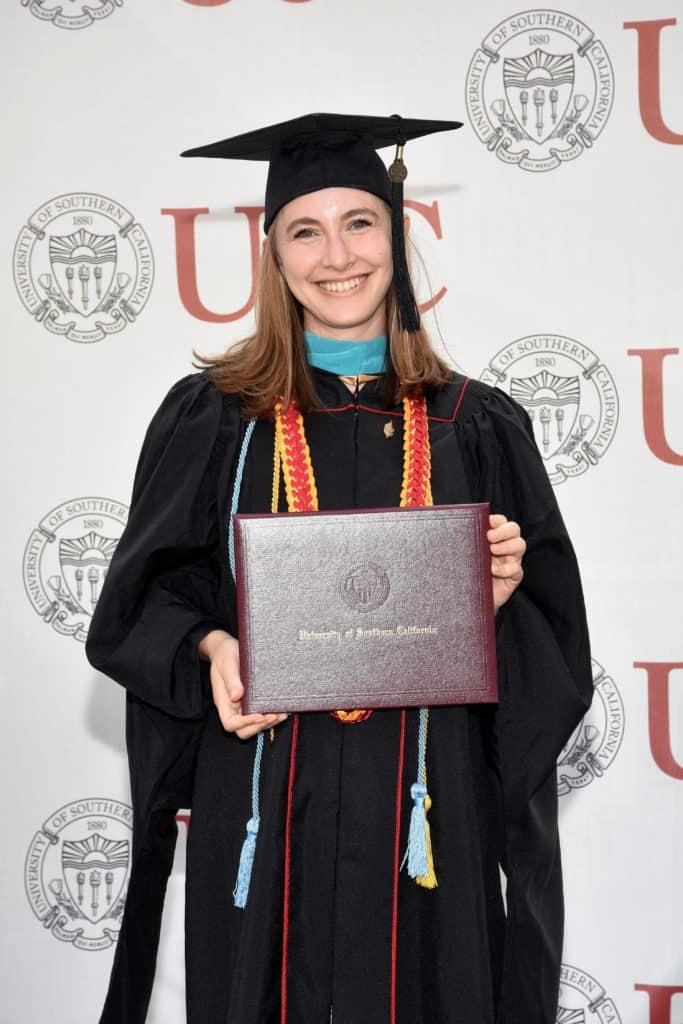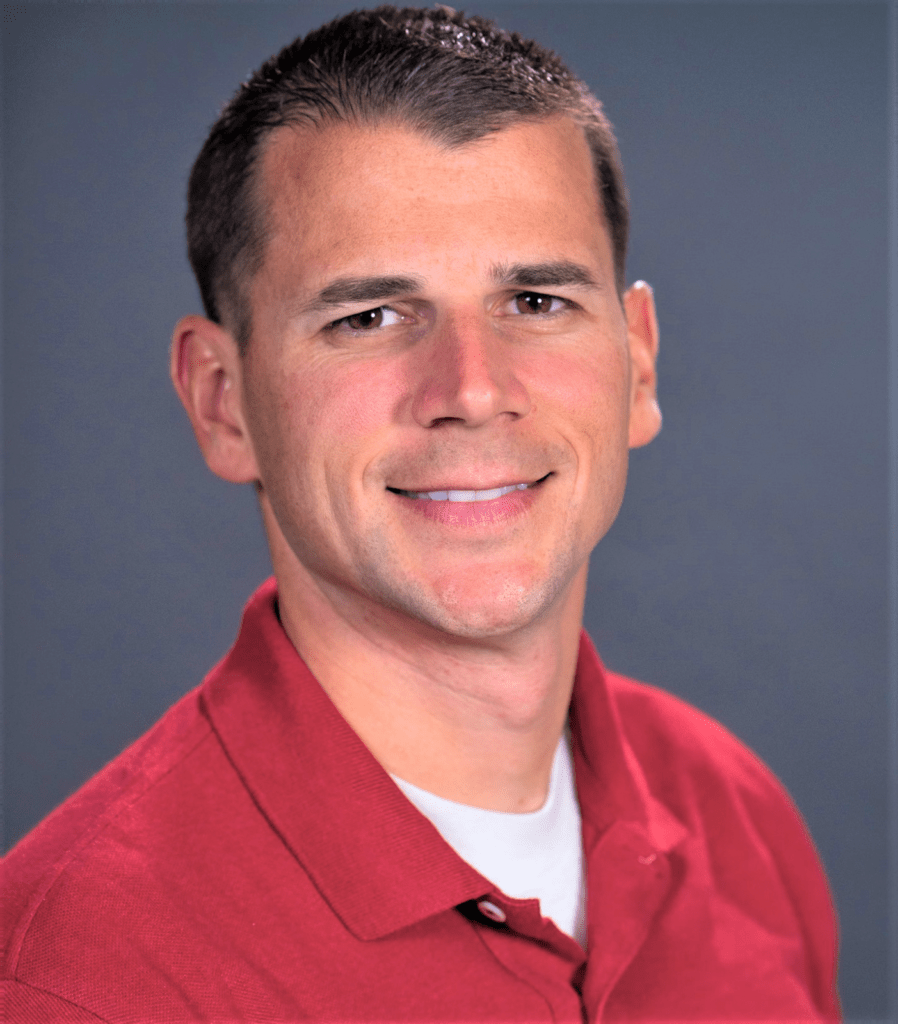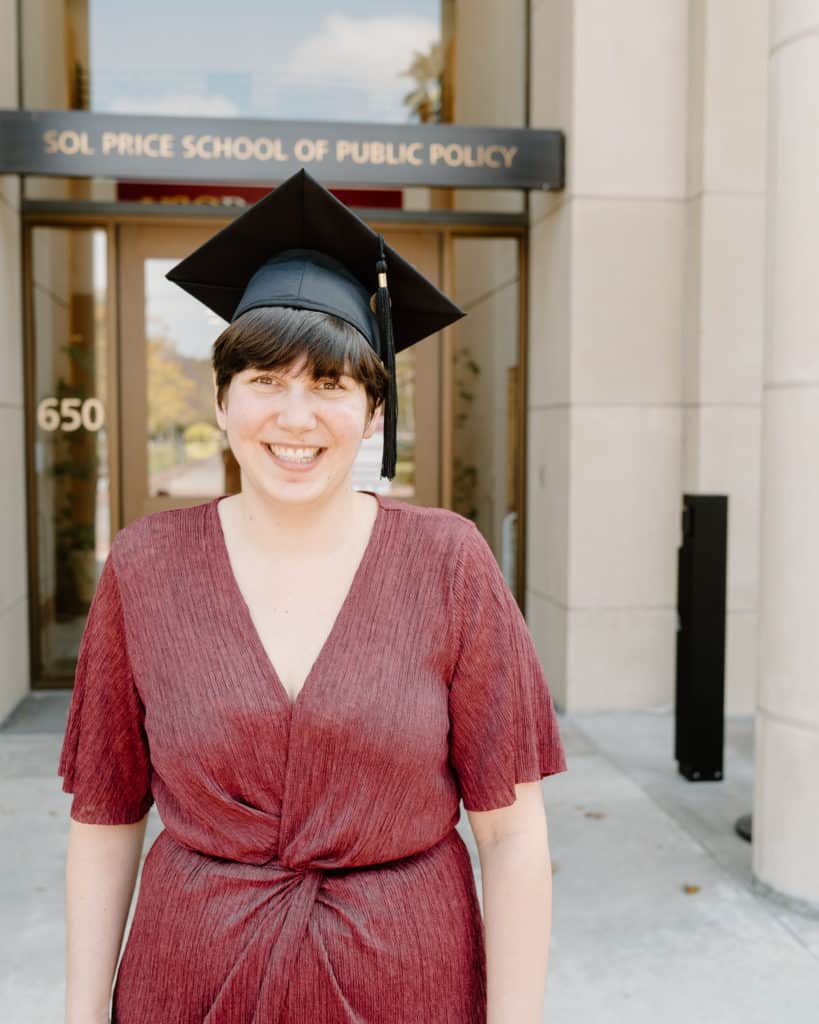By: Eric Ruble
Seeking shelter, privacy and some relative comfort, unhoused people sometimes resort to living in vehicles – whether it’s a compact car or a large RV. They line the streets of American cities, and some municipalities have responded with harsh restrictions to appease nearby residents and businesses.
However, other cities are taking a different approach. Dozens have started designating certain parking lots as “safe parking” zones for homeless individuals. And based on three recent Price students’ research, it’s an effective strategy.
Laila Waheed, Lindsay McElwain and Daniel Schiele – new graduates from USC Price with their master’s in public administration (MPA) program online – were given the Haynes Award for their outstanding capstone.

They were tasked with examining safe parking programs and making recommendations to their client, the Center for Homeless Inquiries (CHI). The trio’s research was not hypothetical; they spoke with policymakers and advocates in 19 cities to learn how well the programs are working.
Safe parking initiatives are relatively new. According to the group, most started within the last two or three years. One of the oldest and most well-known programs was founded in Santa Barbara in 2004.
“They’re totally understudied and no one has taken a concerted and systemic look at these services as they’ve emerged,” said Adam James, the team’s faculty advisor.
When speaking with stakeholders, the team discussed budgets, the parking lots’ locations and how successful each program was at transitioning individuals to permanent or temporary housing. They also reviewed which services were offered, such as childcare, bathrooms and Wi-Fi.
Waheed said keeping the real-world implications of the research was always top-of-mind.
“We have something that is going to have tangible impacts for people that are really struggling right now — that’s the best part of the project,” she said. “What good is it if it’s sitting in the library and we aren’t doing anything with it to make people’s lives better?”
Schiele, a police officer in the Central Valley city of Lodi, understands the gravity of the problem firsthand. For more than a year, he worked exclusively with Lodi’s homeless community.

“That’s all I did, all day, every day. I didn’t answer other calls for service — just anything related to homelessness,” he said.
Schiele said he and his teammates never lost sight of the fact their research can have a lasting impact on people in their communities. “They’re human subjects, so we wanted to make sure all of our effort was the best that we could do,” he said.
All three team members have full-time jobs outside the MPA program. Perhaps the most challenging research period was a three-week stint of interviews.
“Those weeks were brutal. We’re having to write, we’re having to transcribe interviews, we’re having to do our jobs,” said McElwain, who is also a single parent.
Thankfully, they had an invaluable resource during the 15-week endeavor: James.
“He did a fantastic job. He provided some of the best feedback I’ve had in the entire program,” Waheed said of the advisor. “He really took the time to work with us to make it the best product we could, and that was so appreciated.”
James provided prompt, thoughtful feedback despite the fact he was working with three other teams, each with a unique topic.

“I can’t speak highly enough of Adam,” Schiele said.
The team hopes their final 105-page report will be used as evidence that safe parking programs can be an effective tool to alleviate homelessness if implemented properly.
“My goal coming off of this is expanding homeless services to include safe parking as a viable option,” McElwain said. “And possibly being able to use the information that we found from our research to help these programs build.”
As with all projects in the MPA course, the ability to work with a bona fide client means their research has the opportunity to generate tangible change.
“It’s one thing to provide a report that someone can read and take off the shelf every once in a while. But it’s another to hand it to a client that’s motivated and ready to go and take these recommendations and implement them,” James said.
Schiele has already reached out to Lodi city leaders about the group’s findings.
“I can take that [research] to my chief and say, ‘Hey, this works,’” he said.
The newly minted alumni have capped their Price experience by demonstrating one of the School’s key values: thorough research can change policy and improve people’s lives. Now, it’s up to the CHI and city leaders to implement their insights.